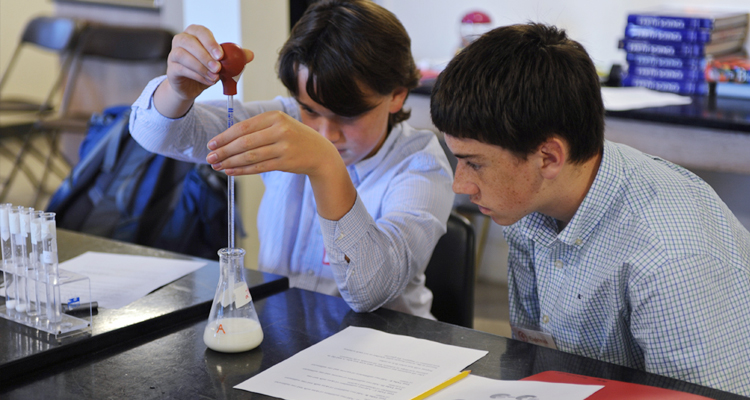Parents who struggle to rouse their sleepy teens for an early morning class know kids are often grumpy before sunrise. Now there’s a new scientific study to show that behavior problems in the classroom decrease if students have a later school start time. Teens at a New York high school were more punctual and subjected to fewer disciplinary actions after their starting bell was delayed by 41 minutes.
Biology Determines Teen Sleep Cycle
Past studies have demonstrated that early school start times interfere with kids’ sleep, impairing academic performance and leading to health risk factors such as depression and obesity. Those risks led the American Academy of Pediatrics to recommend in 2014 that schools start no earlier than 8:30 AM to help ensure teens get enough rest. The doctors explained that the wake cycle shifts by two hours as kids become teens, so dozing off before 10:30 PM is very difficult. Lack of rest manifests in many ways. In addition to long-term health risks, sleep deprivation also hampers the performance of teens’ immune systems, leading to seasonal and other illnesses, and a decline in athletic performance.
Changing School Start Times Results in Fewer Disciplinary Actions
Interestingly, in the New York study, behavior improvements were apparent even though teens reported the same amount of sleep before and after the time change. Researchers from St. Lawrence University collected baseline sleep and behavior data at Glen Falls High School in May 2012, when the day ran from 7:45 AM to 2:22 PM. They collected comparative data in November 2012 and in May 2013 after the school changed its schedule to 8:26 AM to 3 PM. In November, most teens had gained an extra 20 minutes of sleep. By May, however, they were going to bed later, so their overall number of sleep hours mirrored the baseline data.
Later School Start Times Can Have Broad Benefits
Although the St. Lawrence University researchers did not see an effect on physical or mental health or on test scores, one of the study’s lead authors, associate professor of psychology Pamela Thacher, said their results could go beyond the initial benefits.
“We believe our findings with respect to discipline and tardiness are significant because improvements in these domains can help every student in the classroom. For example, benefits could include improved safety, morale, and ease and efficiency of operation for most school systems.”
Other institutions have found that there is a link between sleep times and teen health and recommended later start times so youth can engage in at least 8.5 hours of sleep. The U.S. Centers for Disease Control and Prevention found in 2015 that less than 20 percent of American schools start later than 8:30 AM. The CDC study was based on data from almost 40 thousand public middle and high schools in the 2011–2012 year. Despite the urging of health institutions to shift start times, there is resistance to the idea because of the required logistical changes and the already limited amount of time teens have for after school activities.
Parents trying to find the right balance for their teens’ health and education might want to consider online school options that have adjustable schedules and can accommodate the need for rest.





































